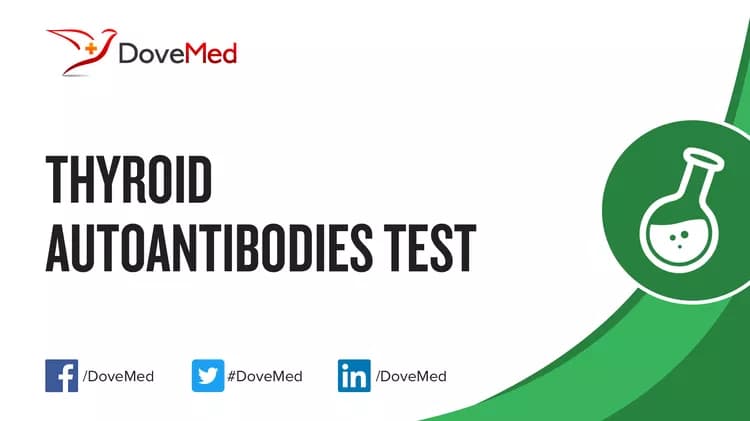What are the other Names for this Test? (Equivalent Terms)
- Antimicrosomal Antibodies Blood Test
- TSH Receptor Antibodies Blood Test
- TSI Blood Test
What is Thyroid Autoantibodies Test? (Background Information)
- Thyroid autoantibodies are bodily defense proteins that target cells and proteins of the thyroid gland. They cause autoimmune disease by disrupting the normal thyroid gland function
- The thyroid gland is situated in the front of the throat, just below the cartilage of the Adam’s apple. It produces 3 main hormones that affect nearly every cell in the body
- The 2 thyroid gland hormones namely, thyroxine (T4) and triiodothyronine (T3), increase body metabolism. They increase consumption of energy and oxygen, and also stimulate growth and development
- The third hormone produced by the thyroid gland is calcitonin, made by C cells. It plays a role in decreasing calcium levels in blood, by stimulating calcium excretion by the kidneys, and through calcium uptake by the bones
- The pituitary gland stimulates the thyroid gland, through production of thyroid-stimulating hormone (TSH). This system operates via a negative feedback loop; TSH stimulates thyroid gland hormones, whose increase then inhibits TSH production
- The thyroid gland uses iodine to make T4 and T3. Without iodine, the production of these hormones is stopped or reduced. This can lead to the formation of goiter (swelling) in the neck, as levels of fluid and hormone precursors accumulate
- Another medical condition of the thyroid gland is that it gets mistakenly targeted by the immune system. This leads to tissue destruction and impaired thyroid function
- Immune cells produce antibodies to clear foreign invaders from the body. However, antibodies can cause various health conditions, if they target the body’s own tissues. These are called autoantibodies and they cause autoimmune disease
- There are several types of thyroid gland autoantibodies:
- Thyroperoxidase antibodies (TPO), or antiperoxidase antibodies - they bind to cells of thyroid tissue and evoke immune destruction of thyroid tissue
- Thyroglobulin antibodies (TGAb), or antithyroglobulin antibodies, target thyroglobulin
- Thyroid stimulating immunoglobulin (TSI) promotes thyroid hormone production by binding to receptors
- Thyroid binding inhibitory immunoglobulin (TBII) prevents receptors from recognizing TSH
- TSI and TBII antibodies are referred to as TSH receptor antibodies (TSHRAb), because they bind to TSH receptors
- The Thyroid Autoantibodies Test is a blood test to detect thyroid autoantibodies. It is used to diagnose autoimmune thyroid disease. This helps in providing an understanding of certain health conditions that are related to metabolism and development
What are the Clinical Indications for performing the Thyroid Autoantibodies Test?
Following are the clinical indications for performing a Thyroid Autoantibodies Test:
- Rapid weight change
- Goiter
- Protruding eyes (exophthalmos)
- Anxiety
- Tremors
- Hair loss
- Rapid heart rate
- Fatigue
How is the Specimen Collected for Thyroid Autoantibodies Test?
Following is the specimen collection process for Thyroid Autoantibodies Test:
Sample required: Blood
Process: Insertion of a needle into an arm vein.
Preparation required: No special preparation is needed prior to the test.
What is the Significance of the Thyroid Autoantibodies Test Result?
The significance of Thyroid Autoantibodies Test is explained:
- A positive result may indicate:
- Graves’ disease
- Hashimoto’s thyroiditis
- Idiopathic myxedema
- Pernicious anemia
- Thyroid carcinoma
The laboratory test results are NOT to be interpreted as results of a "stand-alone" test. The test results have to be interpreted after correlating with suitable clinical findings and additional supplemental tests/information. Your healthcare providers will explain the meaning of your tests results, based on the overall clinical scenario.
Additional and Relevant Useful Information:
Certain factors interfere with the results of the Thyroid Autoantibodies Test. These include:
- Recent radioactive scans or radiation therapy
- Altitude
- Nutritional status
Certain medications that you may be currently taking may influence the outcome of the test. Hence, it is important to inform your healthcare provider, the complete list of medications (including any herbal supplements) you are currently taking. This will help the healthcare provider interpret your test results more accurately and avoid unnecessary chances of a misdiagnosis.
Related Articles
Test Your Knowledge
Asked by users
Related Centers
Related Specialties
Related Physicians
Related Procedures
Related Resources
Join DoveHubs
and connect with fellow professionals


0 Comments
Please log in to post a comment.